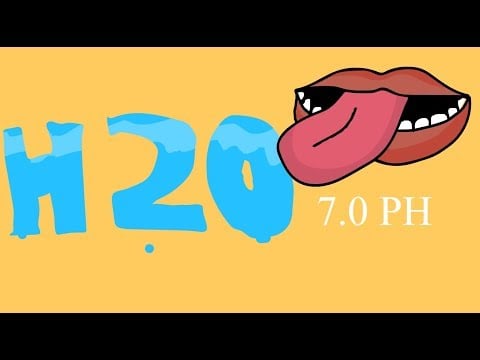🤔 Quick Answer: Sweet-tasting tap water usually means there are elevated minerals like calcium or magnesium — but old pipes, iron, or even health factors can play a role. Most of the time, it’s harmless.
Most of us expect water to taste… like nothing. So if your tap suddenly has a sugary aftertaste, it’s normal to wonder what’s going on.
The truth? A sweet taste in water can point to several things — from harmless minerals to something a little more serious (like lead or iron). Let’s unpack the possible causes — and how to fix it fast.
✅ Quick Takeaways
- 💧 A sweet taste is usually caused by high minerals (like calcium or magnesium)
- 🔩 Corroded plumbing or lingering limescale can also affect flavor
- 🚱 In rare cases, lead or iron might be to blame — test to be safe
- 🧪 Health conditions (like diabetes or ketosis) can alter how water tastes
- 🧼 Filters like softeners, carbon, or reverse osmosis can help restore taste
🍬 Sweet-Tasting Water? These 5 Causes Could Be Why
Noticing a sugary aftertaste when you sip your tap water? Here are the most common culprits behind sweet-tasting water — and what each one might mean for your home’s plumbing or your health.
| 🔍 Cause | 🧪 What It Means | 🛠️ What To Do |
|---|---|---|
| 💧 Hard Minerals | High calcium or magnesium levels can raise pH and give water a naturally sweet flavor | Test for hardness; consider a water softener if levels are high |
| 🧱 Limescale Buildup | Residual scale from hard water minerals alters taste as water travels through pipes | Use a salt-based softener or add a whole-house filtration system |
| ⚠️ Lead | Lead can create a sweet taste — especially in older homes with outdated pipes | Test immediately; install a lead-removal filter or replace plumbing |
| 🔩 Iron | Depending on form and concentration, iron may cause a metallic or sweet taste | Add an iron filter or softener with pre-treatment if levels are elevated |
| 🧬 Biological or Personal Factors | Diet, medications, sinus infections, or even your genetics can impact taste perception | If filtered water still tastes sweet, consult a doctor or dentist |
If you’re still not sure which issue you’re dealing with, a home water test is a smart first step — it can pinpoint contaminants and help you choose the right fix.
🩺 Could Your Health Be the Reason?
Sometimes the answer isn’t in the pipes — it’s in you. A few surprising health-related factors can influence how water tastes, even when the source is perfectly fine.

| 🧠 Possible Cause | 🩺 What Happens | 📌 Notes |
|---|---|---|
| 🍭 Diabetes or Prediabetes | High blood sugar levels can create a persistent sweet taste | May be accompanied by dry mouth or fatigue |
| 🥩 Ketosis (Diet-Related) | Burning fat for energy releases ketones, which may alter taste | Common with keto or low-carb diets |
| 🫁 Lung Issues | Certain tumors can trigger hormone imbalances | Very rare, but should be evaluated if other symptoms exist |
| 🤧 Sinus Infections | Changes to smell can throw off your sense of taste | Temporary — clears with recovery |
| 🦷 Oral Bacteria | Some mouth bacteria can produce sweet or salty sensations | Try brushing with baking soda or visiting a dentist |
If the sweet taste lingers across different water sources — like bottled, filtered, or tap — your body might be the source. A quick chat with your doctor or dentist can help you get to the root of it.
🌀 What If the Sweet Taste Just Started?
If your water tasted normal yesterday and suddenly seems sweet today, something likely changed — either in your plumbing, water source, or even your own body. The most common causes of a sudden shift include:
- New plumbing or recent repairs (especially with PEX or plastic fittings)
- Seasonal changes in your water supply (like snowmelt or municipal flushes)
- A new filter that’s leaching carbon fines or altering taste
- Medication or health changes affecting taste perception
If the sweetness is only coming from one tap, the issue is probably in the pipes. If it’s happening with bottled or filtered water too, it might be biological. Either way, a water test — or a quick health check — can usually narrow it down.
🧪 Is It Safe to Drink — and How Do You Test It?

In most cases, a sweet taste in water isn’t harmful — especially if it’s from minerals like calcium or magnesium. These are naturally occurring and even beneficial in moderate amounts.
But if the sweetness is caused by lead, iron, or corroded pipes, it’s a different story. Even small traces of lead are toxic — especially for kids. That’s why testing your water is the safest first move.
Here’s what to check for:
- pH levels – High pH can give water a sweet flavor
- Hardness minerals – Especially calcium and magnesium
- Iron – Can cause both sweet and metallic notes
- Lead – Common in older plumbing and service lines
🧪 Use a home water test kit to get accurate readings — especially if you’re on a private well or live in a home built before 1986. It’s the fastest way to rule out harmful contaminants.
If you’re on city water, also check your Consumer Confidence Report (CCR) for data on local additives and mineral levels.
🚨 When Should You Be Concerned?
Most cases of sweet-tasting water are harmless, but here’s when it could signal a bigger issue:
- ❗ The taste appeared suddenly and only affects one faucet
- 🏠 Your home has older metal or lead plumbing
- 🧪 You haven’t tested your water in over a year
- 🤢 The sweetness lingers even in filtered or bottled water
- 👶 You have kids or infants in the home (more sensitive to lead)
If you check any of these boxes, test your water ASAP — especially for lead, pH, and iron. It’s a cheap fix compared to ignoring a potential health risk.
💡 Pro Tip: If the taste appeared suddenly, or you haven’t tested your water in a while, don’t wait. A $30–$50 test could save you from months of guesswork (or worse). are present in your local supply.
🚰 How to Fix Sweet-Tasting Water: Filter Options That Work

If your water has that odd sugary flavor, the right filtration setup can clear things up fast. But not all systems target the same problems — so the best choice depends on why your water tastes sweet in the first place.
Here’s a look at the best tools for the job:
| 🔧 Filter Type | 🎯 Best For | 💡 Bonus Tips |
|---|---|---|
| 🧱 Carbon Filter | Chlorine, VOCs, weird odors | Great first step for city water — works in pitchers, under-sink systems, or whole-house setups |
| 🧂 Water Softener | Hard minerals like calcium & magnesium | Helps reduce limescale and balance pH — check out these top-rated softeners |
| 🌬️ Air Injection Filter | Dissolved iron (ferrous), sulfur | Pair with a softener if your water has both iron and hardness — see iron filter guide |
| 🔁 Salt-Free Conditioner | Limescale, minor hardness | Eco-friendly option that doesn’t actually remove minerals — more about salt-free systems here |
| 🚿 Reverse Osmosis | Multiple contaminants, lead, minerals | Captures nearly everything — great for drinking water. Try an under-sink model |
🧠 Still Not Sure Which Filter to Choose?
Start with a home water test — especially if you’re on a well or haven’t tested in a while. Knowing your pH, iron levels, or possible lead exposure helps you choose the right fix without guessing.
- ➡️ Check out the full water testing kit recommendations
- ➡️ For acidic water (low pH), you might need to raise your pH first
Once you’ve got the data, finding the right filter is so much easier — and no more mystery sweetness in your glass.
🎯 Bottom line? If your water has an unexpected sweetness, don’t panic — but don’t ignore it either. A simple test and the right filter can fix it fast.
 142 people found this helpful. Was this guide helpful to you?
142 people found this helpful. Was this guide helpful to you? 


